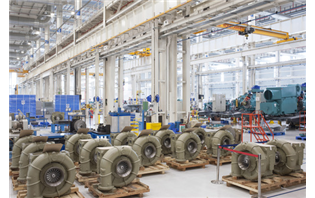The Union Cabinet chaired by Prime Minister Narendra Modi has given its approval to introduce the production-linked incentive (PLI) scheme in ten key sectors. These include advanced chemistry cell (ACC) battery, electronic and technology products, automobiles and auto components, pharmaceutical drugs, telecom and networking products, textile products (man-made fibre and technical textiles), food products, high-efficiency solar PV modules, white goods (air-conditioners and LEDs) and specialty steel.
The PLI scheme seeks to enhance the country’s manufacturing capabilities and enhancing exports under the Central Government’s ambitious Atmanirbhar Bharat Abhiyaan or self-reliant India campaign.
The scheme will be implemented by the concerned ministries and departments and will be within the overall financial limits prescribed. The final proposals of PLI for individual sectors will be appraised by the Expenditure Finance Committee (EFC) and approved by the Cabinet. Savings, if any, from one PLI scheme of an approved sector can be utilised to fund that of another approved sector by the Empowered Group of Secretaries. Any new sector for PLI will require fresh approval of the Cabinet.
“The PLI scheme across these ten key specific sectors will make Indian manufacturers globally competitive, attract investment in the areas of core competency and cutting-edge technology, ensure efficiencies, create economies of scale, enhance exports and make India an integral part of the global supply chain,” a government spokesperson said on Wednesday.
“The government’s PLI scheme for manufacturing will provide the much-needed incentive to develop ‘Make in India’ a reality. But what is important in this scheme is the tectonic mindset change from entitlement to performance, both within the government and the industry,” Manish Bhatnagar, Managing Director, SKF India told INFRASTRUCTURE TODAY.
10 Key Sectors to Boost Manufacturing and Exports
ACC battery manufacturing represents one of the largest economic opportunities of the 21st century for several global growth sectors, such as consumer electronics, electric vehicles and renewable energy. The PLI scheme for ACC battery will incentivise large domestic and international players in establishing a competitive ACC battery set-up in the country.
India is expected to have a $1 trillion digital economy by 2025. Additionally, the Central Government’s push for data localisation, the internet of things (IoT) market in India, projects such as Smart City Mission and Digital India are expected to increase the demand for electronic products. The PLI scheme is expected to provide a boost to the manufacturing of electronic products.
The automotive industry is a major economic contributor in India. The PLI scheme will make the Indian automotive industry more competitive and will enhance globalisation of the sector.
The Indian pharmaceutical industry is the third-largest in the world by volume and 14th largest in terms of value. It contributes 3.5 per cent of the total drugs and medicines exported globally. India possesses the complete ecosystem for the development and manufacturing of pharmaceuticals and a robust ecosystem of allied industries. The PLI scheme will incentivise the global and domestic players to engage in high-value production.
Telecom equipment forms a critical and strategic element of building a secured telecom infrastructure and India aspires to become a major original equipment manufacturer of telecom and networking products. The PLI scheme is expected to attract large investments from global players and help domestic companies seize emerging opportunities and become big players in the export market.
The Indian textile industry is one of the largest in the world and has a share of nearly 5 per cent of global exports in textiles and apparel. But India’s share in the MMF segment is low in contrast to the global consumption pattern, which is majorly in this segment. The PLI scheme will attract large investments in the sector to further boost domestic manufacturing, especially in the MMF segment and technical textiles.
The growth of the processed food industry leads to a better price for farmers and reduces high levels of wastage. Specific product lines having high growth potential and capabilities to generate medium-to large-scale employment have been identified for providing support through the PLI scheme.
Large imports of solar PV panels pose risks in supply-chain resilience and have strategic security challenges considering the electronic nature of the value chain. A focused PLI scheme for solar PV modules will incentivise domestic and global players to build large-scale solar PV capacity in India and help India leapfrog in capturing the global value chains for solar PV manufacturing.
White goods like air conditioners and LEDs have a very high potential of domestic value-addition and making these products globally competitive. A PLI scheme for the sector will lead to more domestic manufacturing, generation of jobs and increased exports.
Steel is a strategically important industry and India is the world’s second-largest steel producer in the world. It is a net exporter of finished steel and has the potential to become a champion in certain grades of steel. A PLI scheme in specialty steel will help in enhancing manufacturing capabilities for value-added steel leading to an increase in total exports.



Leave a Reply
You must be logged in to post a comment.